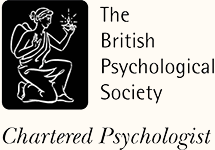EMDR (Eye Movement Desensitisation and Reprocessing)

EMDR is the abbreviation for Eye Movement Desensitisation and Reprocessing. The name sometimes puts people off because it sounds obscure, but essentially it is a highly effective therapy that helps people to reprocess trauma, pain and grief through the use of stabilising techniques and the use of eye movements that are similar to those that occur during REM sleep.
The aim of EMDR therapy is to aid the information processing system in our brains to rapidly make helpful connections that help us heal past traumas and integrate them into the rest of our life experiences. This means that we can face our painful experiences from the past with the support of an experienced EMDR therapist, ultimately feel less distress in relation to previously upsetting memories, and move forward towards our goals in life without being held back by past experiences that have been affecting us in the present.
I am an EMDR Europe Accredited Clinical Supervisor/Consultant, having originally trained in EMDR in 2016. I offer EMDR treatment as part of a complete and comprehensive treatment plan that includes: undertaking a detailed assessment of your difficulties and what you would like to achieve in therapy; teaching you techniques to help you manage difficult emotions both in-sessions and for use between sessions; the reprocessing work; and resource-building to strengthen your ability to manage new situations well and achieve life goals that perhaps past experiences had previously held you back from embarking upon.
EMDR is a successful therapy for Post-Traumatic Stress Disorder (for example, for survivors of trauma, abuse, combat experience, and road traffic / other accidents). It is also an effective approach for overcoming phobias, and overcoming negative early life experiences that continue to affect people in the present.
Assessment and preparation sessions in EMDR last 50 minutes; more intensive processing sessions can last 50- 90 minutes.



